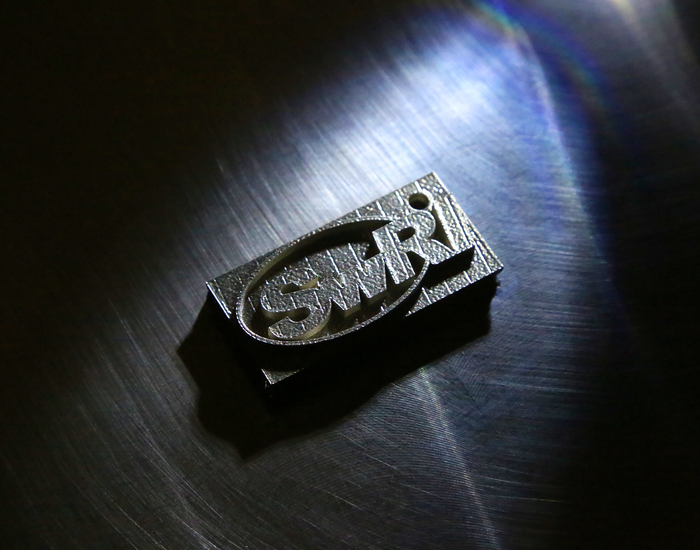SAN ANTONIO — April 12, 2023—Southwest Research Institute will contribute to a new NASA institute to improve understanding and enable rapid certification of metal parts created using advanced additive manufacturing (AM) techniques. The Institute for Model-based Qualification & Certification of Additive Manufacturing (IMQCAM) will work to improve computer models of additively manufactured metal parts and expand their utility in spaceflight applications.
Additive manufacturing uses 3D printing or rapid prototyping to build an item by layering plastic, metal and other materials using a custom, computer-generated design. Because AM creates sturdy components with intricate design qualities, it appeals to a wide range of users, including the aerospace, medical and manufacturing industries.
IMQCAM is one of two new Space Technology Research Institutes (STRIs) created by NASA to develop technology in critical engineering and climate research arenas. NASA began creating STRIs to strengthen its ties to the academic community through sustained investment in the development of research and technology crucial to NASA’s future.
Over the course of five years, this STRI will develop detailed computer models, or digital twins, for additively manufactured parts that have been validated against experimental data and subjected to rigorous uncertainty quantification protocols. The models will evaluate response to fatigue in spaceflight materials currently used for 3D printing, as well as introducing and qualifying new materials.
Southwest Research Institute will aid in technology transfer of university-developed models for practical industrial use. This process will include integration with the SwRI-created DARWIN® (Design Assessment of Reliability with INspection) fracture mechanics and reliability assessment software, which supports damage tolerant design and analysis of metallic structural components.
Carnegie Mellon University and John Hopkins University will co-lead IMQCAM. Additional partners in the institute include Vanderbilt University, The University of Texas at San Antonio, University of Virginia, Case Western Reserve University, Johns Hopkins University Applied Physics Laboratory and Pratt & Whitney.
For more information, visit https://www.swri.org/darwin.
About SwRI:
SwRI is an independent, nonprofit, applied research and development organization based in San Antonio, Texas, with more than 3,000 employees and an annual research volume of nearly $798 million. Southwest Research Institute and SwRI are registered marks in the U.S. Patent and Trademark Office. For more information, please visit https://www.swri.org/.

Credit: Southwest Research Institute
SAN ANTONIO — April 12, 2023—Southwest Research Institute will contribute to a new NASA institute to improve understanding and enable rapid certification of metal parts created using advanced additive manufacturing (AM) techniques. The Institute for Model-based Qualification & Certification of Additive Manufacturing (IMQCAM) will work to improve computer models of additively manufactured metal parts and expand their utility in spaceflight applications.
Additive manufacturing uses 3D printing or rapid prototyping to build an item by layering plastic, metal and other materials using a custom, computer-generated design. Because AM creates sturdy components with intricate design qualities, it appeals to a wide range of users, including the aerospace, medical and manufacturing industries.
IMQCAM is one of two new Space Technology Research Institutes (STRIs) created by NASA to develop technology in critical engineering and climate research arenas. NASA began creating STRIs to strengthen its ties to the academic community through sustained investment in the development of research and technology crucial to NASA’s future.
Over the course of five years, this STRI will develop detailed computer models, or digital twins, for additively manufactured parts that have been validated against experimental data and subjected to rigorous uncertainty quantification protocols. The models will evaluate response to fatigue in spaceflight materials currently used for 3D printing, as well as introducing and qualifying new materials.
Southwest Research Institute will aid in technology transfer of university-developed models for practical industrial use. This process will include integration with the SwRI-created DARWIN® (Design Assessment of Reliability with INspection) fracture mechanics and reliability assessment software, which supports damage tolerant design and analysis of metallic structural components.
Carnegie Mellon University and John Hopkins University will co-lead IMQCAM. Additional partners in the institute include Vanderbilt University, The University of Texas at San Antonio, University of Virginia, Case Western Reserve University, Johns Hopkins University Applied Physics Laboratory and Pratt & Whitney.
For more information, visit https://www.swri.org/darwin.
About SwRI:
SwRI is an independent, nonprofit, applied research and development organization based in San Antonio, Texas, with more than 3,000 employees and an annual research volume of nearly $798 million. Southwest Research Institute and SwRI are registered marks in the U.S. Patent and Trademark Office. For more information, please visit https://www.swri.org/.




